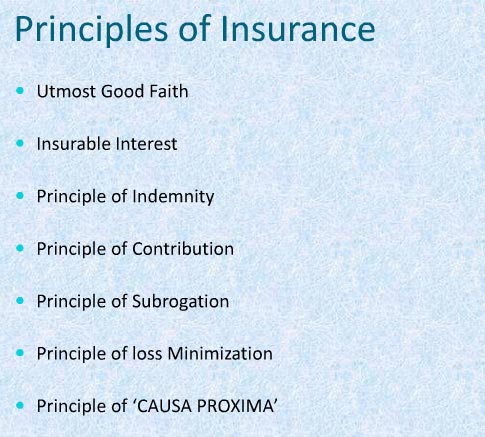Basic Essential Principles of Insurance
Following are the basic essentials of insurance
Insurable Interest
Insurable interest is a legal requirement. Without insurable interest, an insurance contract is not valid. The object of this principle is to prevent insurance from gambling contract.
Excellent faith
All types of contracts of insurance depend upon the contracts of excellent faith. This is the duty of both the parties to share all the facts about contract to each other. If both the parties fail to do so, the contract is not enforceable as a contract of law.
What Islam said about Insurance
Indemnity
It means a promise to compensate in case of loss. All insurance contracts except contact of life insurance are contacts of indemnity. In case of marine and fire insurance, the insured can be cover only actual loss which is sustained by the insurer. If there is no loss, then the insured has not right to receive any amount.
Cancellation
According to this principle, bother the parties have right to cancel the policy before its expiry date. After the cancellation, the period of policy comes to an end.
Mitigation of lass
According to this principle, the insured should take any steps to minimize the loss. Otherwise, the insurance company can refuse to compensate the insured due to the negligence.
Proximate cause
According to this principle, the insurer is liable only for those losses which have been caused by the risks insured against. In case of loss, the direct or immediate cause should be considered.
The claim is paid only if the cause of loss is insured against the risk of loss.
Attachment of risks
The contract of insurance cannot be enforced with the attachment of definite risk.
Arbitration
The arbitration is to be appointed in writing by both the parties in case of differences. Due to this, the changes of litigation can be reduced.
Insurance Meaning and Definition
Doctrine of contribution
If the insurer got his goods insured with more than one insurance company, then in case of loss each company will contribute that proportion of the loss.
Doctrine of subrogation
This principle is applied only in fire and marine insurance. According to this principle, the insurer can recover the actual amount of loss. In case the loss occurs without any fault on anybody’s part, the insured can recover the loss from the insurer. But if the loss arises due to the negligence of third party, then loss can be recovered from the insurer or from the third party.





Comments are closed.